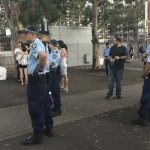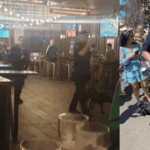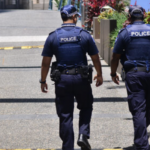Police Overreach: Officers Harass Patrons Inside Sydney Events Venue
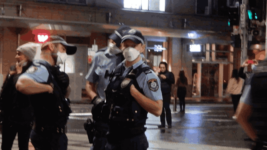
Anti-drug dog campaign Sniff Off reported on 12 November 2022 that it had received reports from Oxford Art Factory patrons that NSW police officers were requiring them to identify themselves via the use of their mobile phones, even though venue security had already verified their IDs.
“We understand that despite IDs being confirmed by security at the door, police waiting inside the venue were asking patrons to see ID again, and then asking them to verify that ID by showing them social media, messages, etc on their phones,” explained a Sniff Off spokesperson.
On the Friday evening in question, the Darlinghurst venue was featuring Irish masked techno duo Riot Code. And it remains unclear what purpose was served by having officers ask patrons to verify their ID in relation to content on their smartphones.
“This is an outrageous overreach by the NSW police who cannot search anyone’s phone without a warrant,” the campaign spokesperson told Sydney Criminal Lawyers.
The Sniff Off Facebook post advises the public that police officers cannot require civilians to show them anything on their phones without a warrant. And the statement then goes on to suggest that someone in this situation politely decline the request, and perhaps disable face ID on their device.
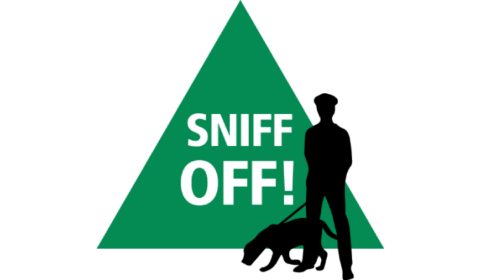
Know and exercise your rights
“For years inappropriate behaviour, like officers encouraging dogs to sit next to people or strip-searching children without sufficient grounds to do so, has continued with strong government support,” Sniff Off said in regard to NSW police operations.
“And let me be clear – these are not issues unique to the drug dog unit either,” the spokesperson continued, adding that often civilians are unaware of their rights, which permits officers “to get away with inappropriate behaviour”.
In terms of rights that Sniff Off considers the public should have front and centre is that civilians are not required to speak with police officers.
Rather, the post outlines that the subject of any questioning should respond with, “Is it an offence if I don’t answer?”, as exercising “your right to silence helps protect you and your community”.
An occurrence of police overreach outside of the dog unit happened in June, when plainclothes officers were discovered staking out a private property where climate defenders were gathered.
These officers then refused to identify themselves on being asked and instead attempted to escape the scene in an unmarked police car.
While the Law Enforcement Conduct Commission’s 2020 NSW police strip use inquiry report, documents numerous instances where NSW police have carried out strip searches illegally.
The 2021 NSW Police Force response to the report’s recommendations, however, was rather disappointing, as many of the suggestions that would have made positive reforms on the ground in regard to the application of this invasive and traumatising practice were not supported.
But even if a civilian is aware of their rights, when a pair of armed police officers do approach them, whether that be in a venue to check their phone or after a dog indication to perform a strip search, it’s an intimidating situation where the power imbalance makes it difficult to speak up.
The Sniff Off spokesperson concluded, officers “are so heavy-handed and intimidating that people would rather get things over and done with than try to assert their rights and risk worsening their encounter”.



